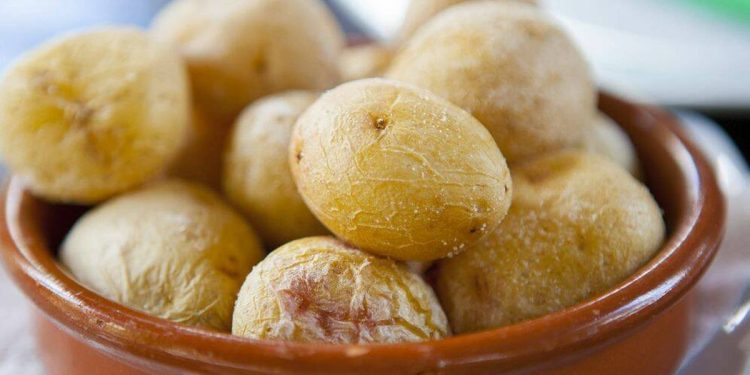The Canary Islands, known for their beautiful landscapes and vibrant culture, are currently facing an unexpected crisis. Fear has gripped the archipelago, and it’s not due to a natural disaster or political turmoil but rather a tiny, insidious pest – the Colorado potato beetle. This unforeseen menace has disrupted the supply of potatoes, a staple in Canarian cuisine, threatening both local farmers and consumers. In this article, we will delve into the potato crisis on the Canary Islands, exploring its origins, impact, and potential solutions.
The Colorado Potato Beetle Outbreak:
The crisis began when the Colorado potato beetle, Leptinotarsa decemlineata, was discovered in Kent County, England. This insect, commonly known as the Colorado beetle, is a notorious potato pest known for its voracious appetite. The news of its presence prompted the Canary Islands to take swift action to protect their valuable potato crops.
In response to the threat posed by the beetle, the Ministry of Agriculture, Fisheries, and Food of the Canary Islands issued an order in July of the previous year, banning trade with England for phytosanitary reasons. The fear was that the beetle could eventually spread to potato products labeled with their place of origin, exacerbating the problem. This ban, although necessary, has had significant consequences.
Dwindling Potato Supplies:
Currently, the Canary Islands are depleting their potato reserves and locally grown produce. The limited supplies are a growing concern for both traders and distributors. Angela Delgado, a Canarian farmer and president of ASAGA, an agricultural and farming association representing over 6,000 industry workers, expresses her worries: “Between the remaining stock and what we produce, we can barely make it to October.” This leaves just a little over a month to secure a solution.
While Delgado understands and supports the trade ban with England, given that the outbreak began there, she firmly opposes extending this measure to the entire United Kingdom. She raises the question, “What about Wales, Scotland, or Northern Ireland?” The third appendix to the 1987 order, which sets phytosanitary standards for importing potatoes from other countries, already allows for commercial restrictions if traces of the Colorado potato beetle are found in any country that exports to the Canary Islands.
Two Pests, Double Trouble:
In previous years, the Canarian potato industry might have managed to stretch their reserves for a longer duration. However, it’s crucial to note that the Colorado potato beetle is not the only threat to their agricultural crops. According to sources in the Ministry of Agriculture, Livestock, and Fisheries, the Canary Islands are “accessible and highly susceptible to any pests,” citing the case of the Guatemalan moth, which also infiltrated their crops. In the same year, over 100,000 kilograms of potatoes were registered as damaged by this insect.
Current Situation and Potential Solutions:
As of now, there are potatoes in stock, aside from local production (which exceeded 91,000 kilograms in the last fiscal year), and European regulations permit trade with many other countries. In 2022, nearly nine thousand tons of potatoes were exported to the Canary Islands, indicating a steady flow of imports.
To mitigate the crisis, the Canary Islands must explore various avenues, including intensifying pest control measures, diversifying their potato sources, and fostering local production. Collaboration with other regions of Spain could also help stabilize the potato supply chain.
Conclusion:
The Colorado potato beetle outbreak on the Canary Islands has sparked a crisis that threatens the region’s food security and local economy. While the trade ban with England was a necessary step to prevent the spread of the pest, it has brought unintended consequences. The clock is ticking, and Canarian farmers and traders are racing against time to find a solution to the looming potato shortage. By implementing effective pest control measures and seeking alternative potato sources, the Canary Islands can hope to secure their beloved staple food once again.
Keywords: .







